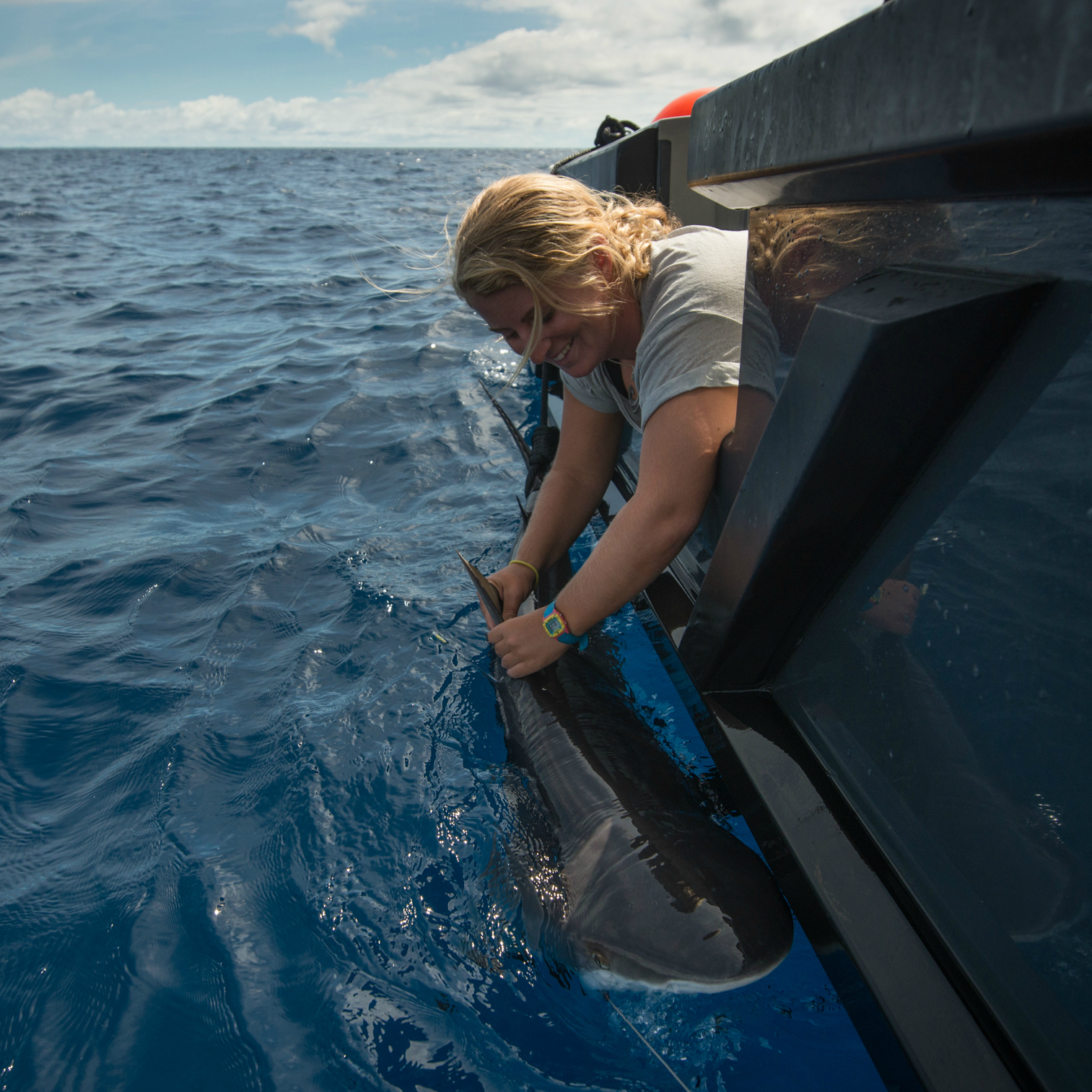
Tina Oldham
Marine Ecologist, Institute for Marine and Antarctic Studies
I still remember the first time I put on a mask and looked into the ocean. It was brown, mucky and I couldn’t see further than one metre in any direction. I was both terrified and mesmerized; and I was hooked. Because what you can’t see, and what you don’t know, to me is the most exciting. I knew in that moment that I wanted to dedicate my life to the conservation of the marine environment.
I had no idea what it actually meant to be a “Scientist”. What I knew was that I wanted to know everything, literally everything, about the ocean and all of the life in it. I spent as much time as I could in the water, learned to SCUBA dive on my 12th birthday, and when I wasn’t in the ocean I was reading about it.
After working straight through to my Master’s degree in Marine Biology I left academia for a while to test some other waters. I taught marine science aboard a tallship. I performed outreach and policy advocacy with a non-profit conservation group. I worked in marine related branches of government. And now, twenty years after that first snorkel, I’ve returned to school.
I have chosen to complete my PhD in aquaculture because if action isn’t taken we will lose the diversity of the oceans before it has ever even been explored. And in a time when all we seem to hear about are extinctions and catastrophes, aquaculture provides a solution, a step in the right direction. Seventy-one percent of our planet is covered by water, and with thorough research and responsible practices aquaculture has the potential to provide food for the masses and bring the demand for wild fisheries to sustainable levels.
When I look out into the blue of the open ocean, I know that anything could be below me: animals unknown to science and never before seen, whales larger than any dinosaur that ever lived, sharks the size of a bus, fish that glow in the dark, or even a squid whose eyeball is larger than my head. Out of the darkness, anything could rise. I am a Marine Scientist because I want it to stay that way.